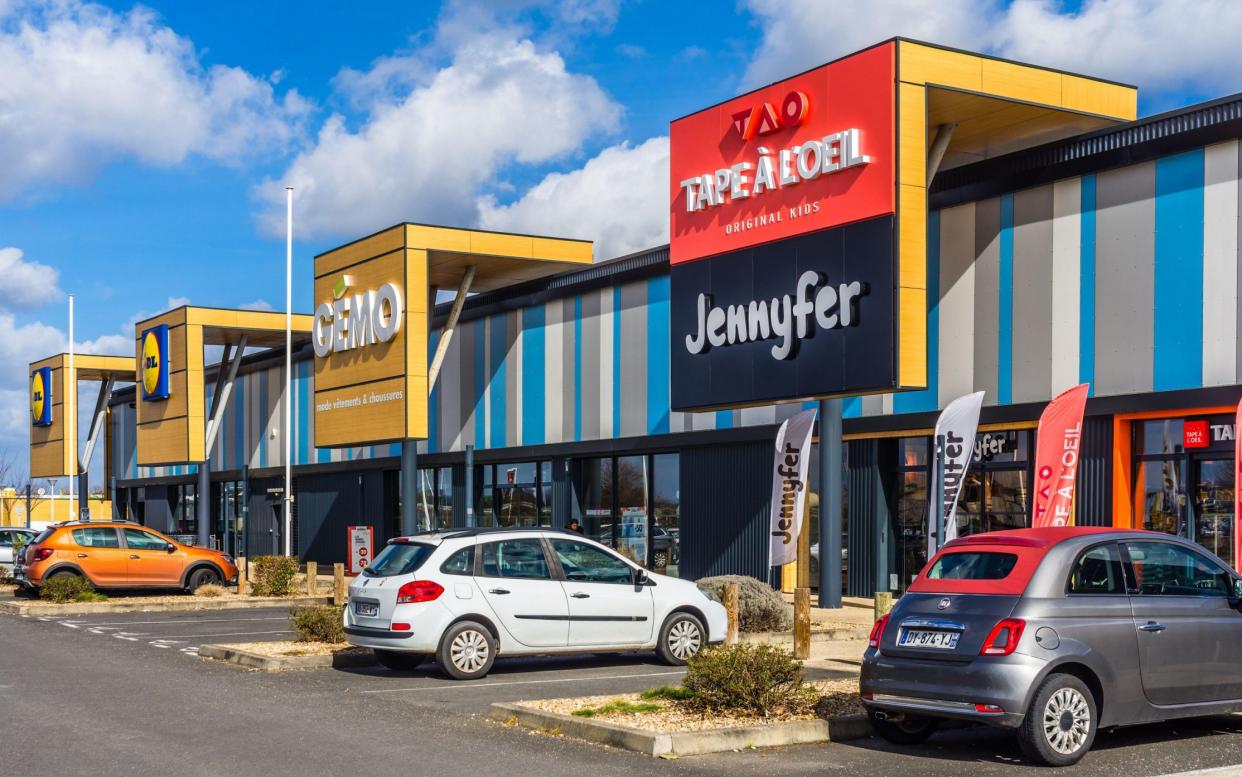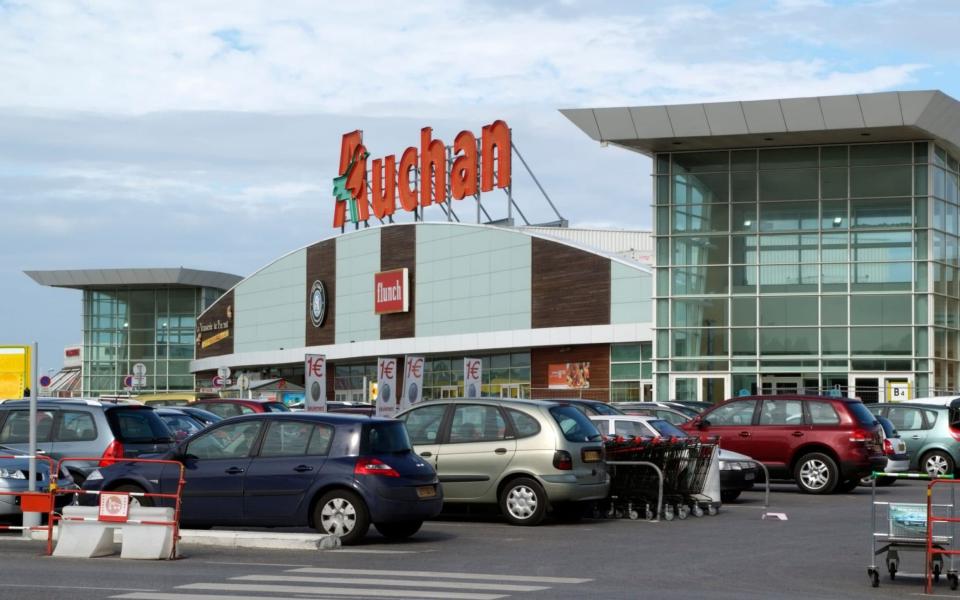‘Ugly France’ to get £22m facelift to transform commercial zones

The French government has pledged to give “ugly France” a face lift by transforming rows of warehouse-style out-of-town shops blighting the edges of historic towns and cities.
Anyone who lives or goes on holiday in France will be well-acquainted with such “zones commerciales”, which have become eyesores and are accused of sucking the life out of town centres.
Since the creation of the first French hypermarket in 1963, around 1,500 of such zones have sprung up, sprawling over a surface area “five times the size of Paris”.
On Friday, the government said it had picked 74 zones that will receive a relatively modest €26m (£22m) in funding to help transform them.
It said the idea is to create an “impetus”, with shopkeepers and property owners footing much of the bill adding that 11 of them are already in an “advanced stage” of transformation.
“We have metropolises as well as medium-sized towns and even small towns of 3,000 inhabitants”, said Olivia Grégoire, the minister for small and medium enterprises and tourism.
The overhaul could potentially result in the “creation of 25,000 homes” in a country with a dearth of housing, she added.

These commercial zones usually contain a string of chain and discount stores and at least one supermarket, mainly in unattractive, “shoe box”-shaped buildings.
They have their own car parks and are generally within driving distance of the nearest town or major road. They are also typically cluttered with a thicket of signs, advertising billboards and roundabouts and are heavy on concrete and light on greenery.
After attracting other businesses like restaurants, cinemas and bowling alleys, they now account for almost 72 per cent of French people’s spending in shops compared to 15 per cent spent in town centres, according to Ms Grégoire, who launched a programme to transform them in September.
“For 60 years, shopping centres have been the embodiment of mass consumption in a society of abundance. This model is obsolete, including from an environmental point of view,” she told Le Parisien.
They are “often unsightly, consume a lot of energy and show little concern for the environment”.
She said the challenge is to “reinvent them for the next 60 years” with sites combining shops, housing, services, cultural activities and sports.
‘Moribund old town centres’
Such commercial zones have come under attack in recent years by a group called Paysages de France (Landscapes of France), which runs an annual “Ugly France Prize” lavishing ironic accolades on towns considered as “moche” (ugly).
Last year’s winners included a shopping area near Chavelot in the Vosges, eastern France, which had “an excess of banners that borders on abusive”.
The entrance to Honfleur, renowned as a pretty Norman seaside town, was also among the “winners”. “Tarpaulins, signs, banners, totems, flags, take your pick,” it wrote.
Previous recipients have been stung into cleaning up their act, it insists.
Compared to “moribund old town centres with abandoned shops”, these shopping areas “are the urban centres of the early 21st century”, said sociologist Fabrice Raffin. People go there not just to shop but to “hang out and eat ice cream”.
To totally overhaul them risks denying an “entire lifestyle, based on consumption and the car, often by people who take the metro and don’t know about it,” he told Le Monde.
“The rhetoric and beliefs of an urban minority are seeking to discredit this means of consumption, but people care about it.”
Improve, not remove
Ms Grégoire said the plan was not to remove but to improve them.
A “dynamic” commercial area in an urban setting could, she said, “be made denser and make way for housing”, while an area in commercial decline could “be regenerated or used for industrial activity if it is located in a sparsely populated area”.
France has made several attempts to tackle the spread of ugly peri-urban areas. In 2015, it enacted a bill outlawing billboards advertising services such as hotels, restaurants and service stations at the entrance of French towns and villages of under 10,000 residents.
Critics say it has made little difference and is hard to enforce.

